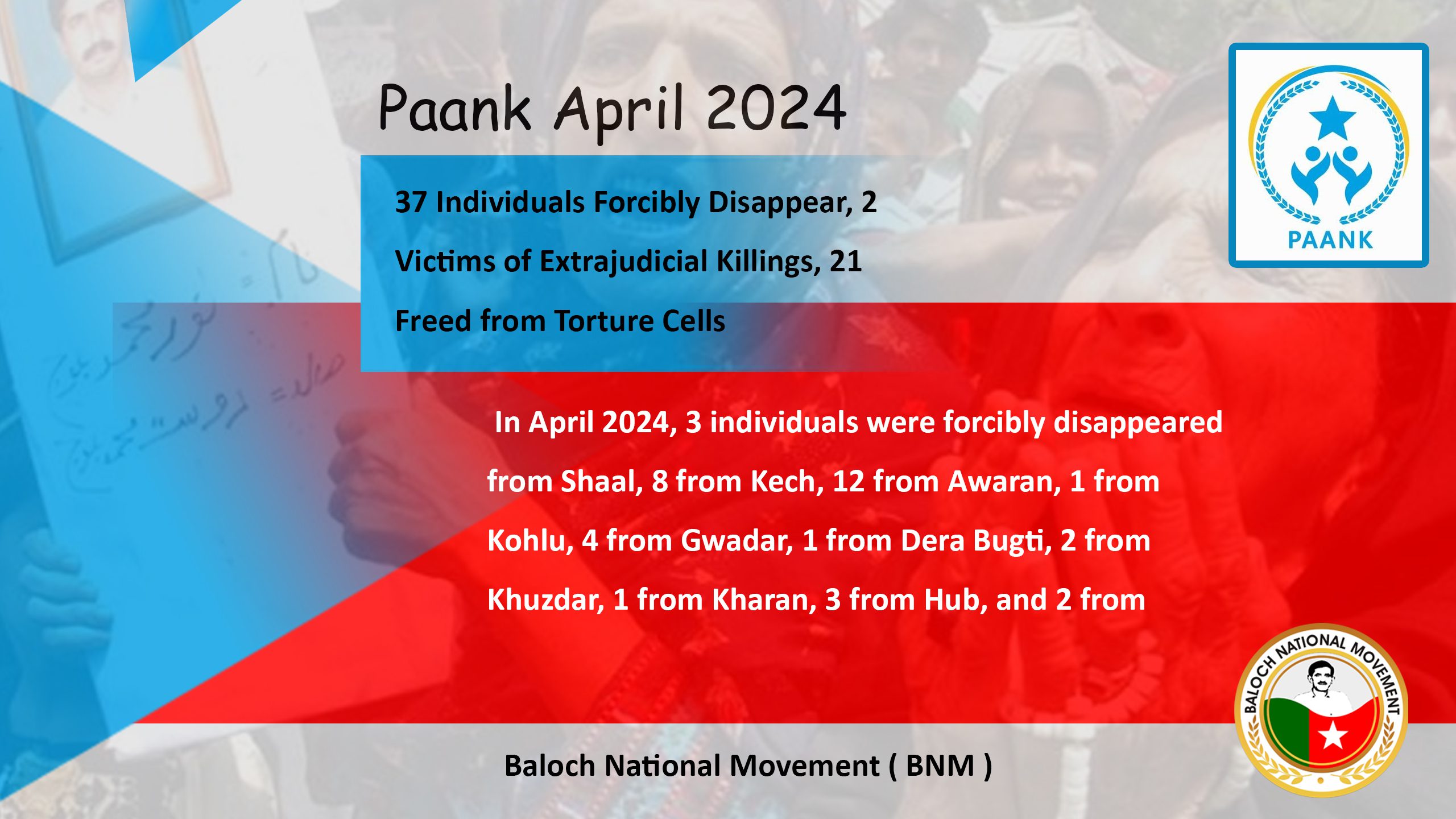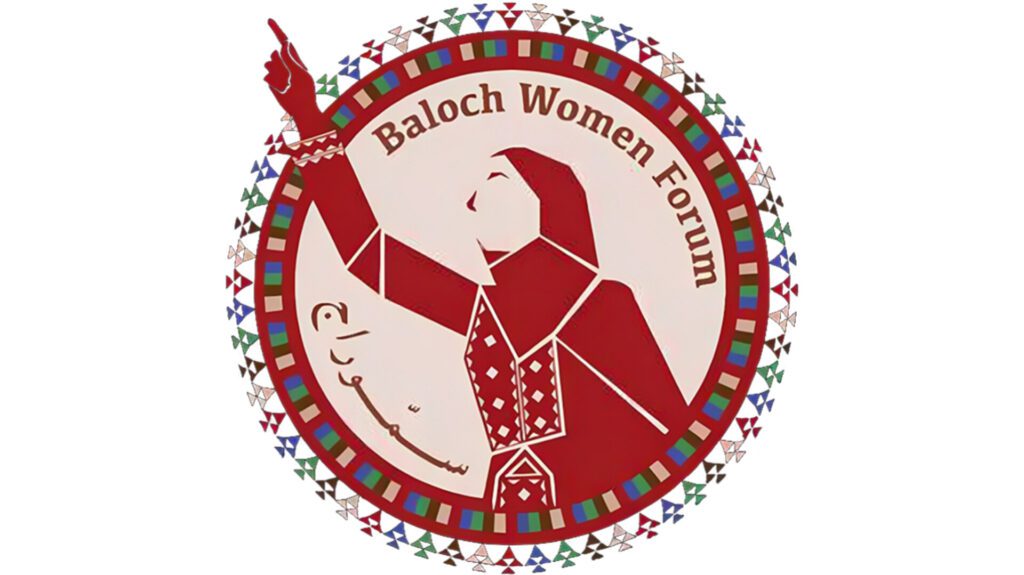The Human Rights Department of the Baloch National Movement (BNM) , Paank has released its April 2024 report, shedding light on the dire human rights situation in Balochistan. The report highlights instances of extrajudicial killings and forced disappearances, revealing concerning trends in the region.
According to the report, agencies affiliated with the Pakistani army forcibly disappeared 37 individuals after extrajudicial and legal arrests. However, there is a glimmer of hope as 21 previously disappeared persons were released. Tragically, on April 11, Malik Raba, son of Gul Muhammad Marri, was detained from Machi Chowki, only for his body to be discovered 13 days later in Sabi district.
Our latest report exposes dire human rights violations in #Balochistan: 38 enforced disappearances by Pakistani forces in April 2024 alone. Urgent action needed to address widespread abuses. https://t.co/xs7g7Ed6l4
— Paank (@paank_bnm) May 8, 2024
The monthly report by PANK reaffirms suspicions surrounding the death of Levies employee Barkat Sajdi on April 14, suggesting it was not suicide but state murder. PANK has undertaken a separate investigative report on this matter.
According to the report, in April 2024, 3 individuals were forcibly disappeared from Shaal, 8 from Kech, 12 from Awaran, 1 from Kohlu, 4 from Gwadar, 1 from Dera Bugti, 2 from Khuzdar, 1 from Kharan, 3 from Hub, and 2 from Chagai district.In the report, the fencing around Gwadar and the postponement of the Rashid Hussain case hearings are highlighted as significant human rights violations that occurred last month. Renowned lawyer Iman Mazari, who is handling the disappearance case, has voiced dissatisfaction with the legal proceedings, sparking concern and frustration.
The report stated,Pakistan’s courts are showing a lack of seriousness, which is turning the already weak hope of enforced disappearances into more despair.
The judicial system of any state plays a vital role in ensuring that rulers and authorities adhere to constitutional and legal boundaries. Effective court proceedings significantly reduce citizen anxiety and safeguard their rights. However, Pakistan faces challenges in maintaining judicial independence, with courts openly acknowledging their lack thereof. Paank has underscored that it is imperative for United Nations human rights organizations to intensify their involvement and urge influential nations to exert pressure on Pakistan concerning enforced disappearances. Given that Pakistan is a member state of the UN, this widespread violation of human rights should not be overlooked or taken lightly. The UN unequivocally defines enforced disappearance as not merely an individual or familial matter, but as a crime against humanity. Regrettably, the United Nations, along with international leadership and human rights institutions, have failed to halt the prolonged occurrence of forced disappearances spanning over the past two decades. This failure severely undermines the confidence of the Baloch people in these institutions.Paank warns of escalating tensions in Balochistan, Gwadar fencing controversy could escalate into a new conflict in Balochistan, exacerbating the already dire human rights situation. according report , The state-level approach towards Gwadar city not only widens the gap between the Baloch nation and the state but also impacts the entirety of Balochistan. The Pakistani establishment is promoting the notion that Gwadar is solely its territory, disregarding its historical ties to the Baloch nation. This narrative, contrary to historical facts, drives initiatives such as constructing a perimeter fence around Gwadar and isolating it from Balochistan, along with the issuance of special entry and residency passes. Pakistan’s security agencies seek to deflect blame for their shortcomings onto the citizens.
The Paank appealed to countries interested in investing in Gwadar to intervene and help prevent a humanitarian crisis in the near future.



